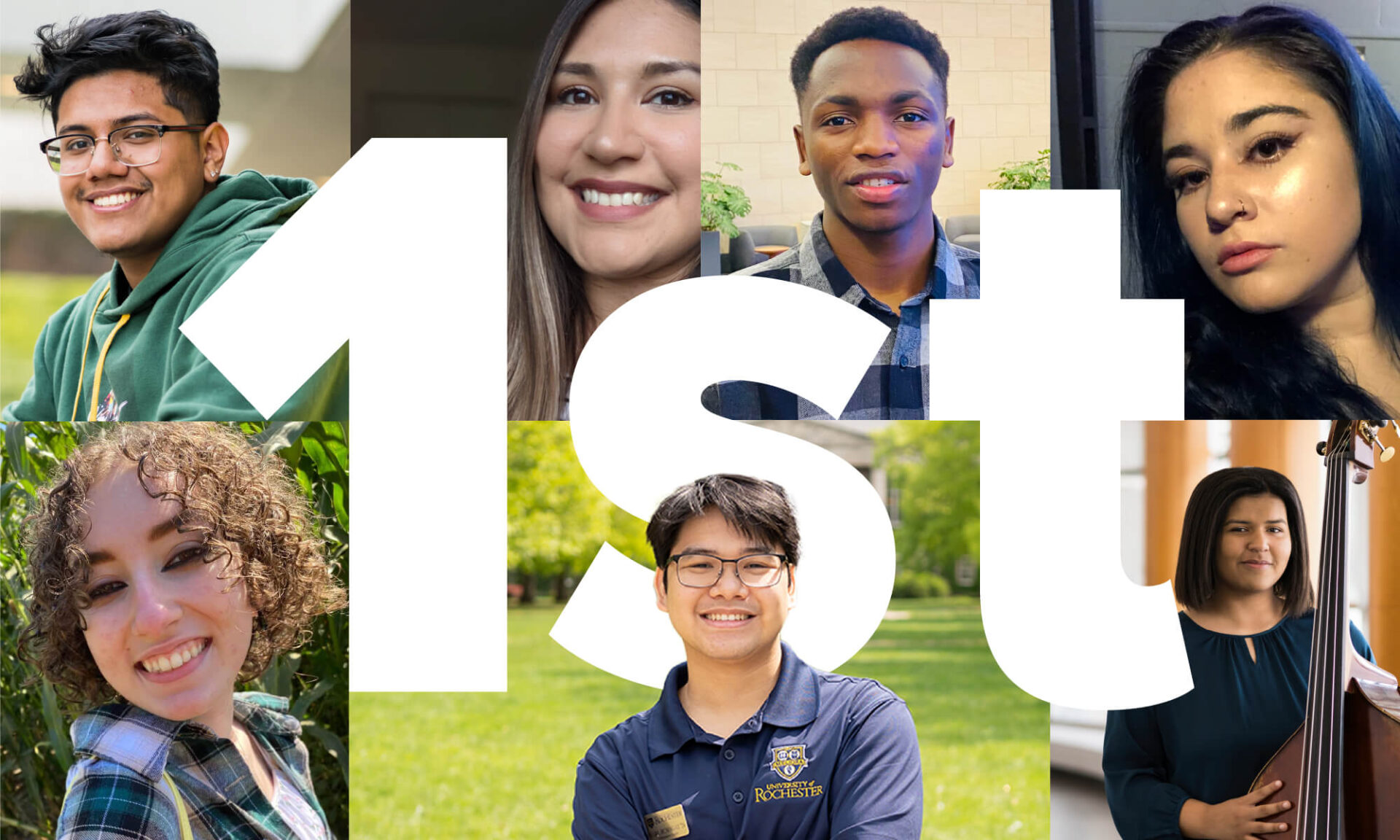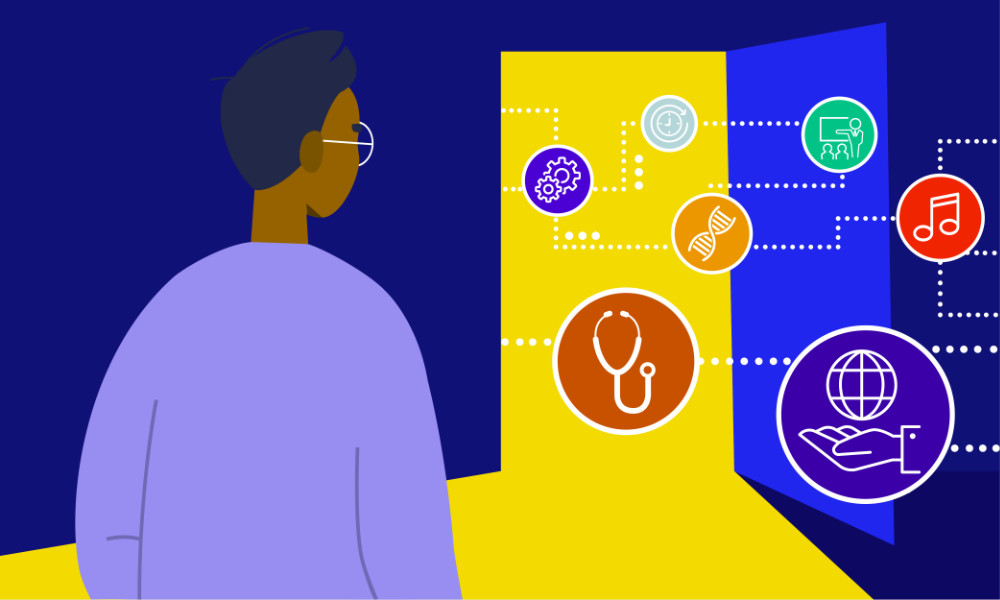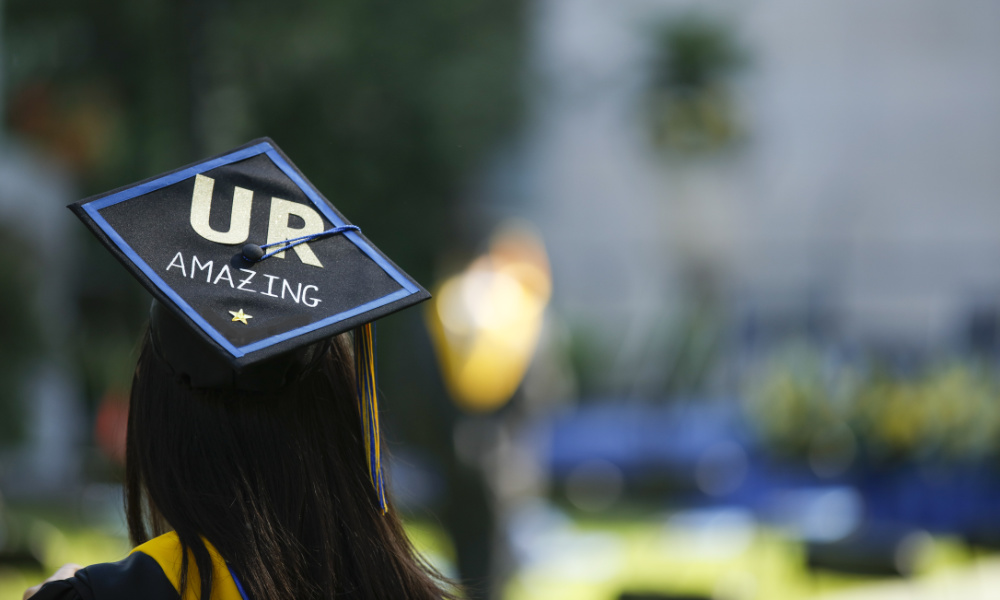About 20 percent of Rochester’s undergraduate student body are the first in their family to make the higher education leap.
In this article
- Who’s a first-generation student?
- Navigating the college application process
- Persistence pays off with a PhD
- The role of mentors, extracurriculars, and financial support
- Kearns Center: Fostering a sense of belonging
- An extended network for first-generation students and alumni
- Support services across campuses
- An investment in the future
- Advice from first-generation students
As he sat among thousands of fellow graduating students at the University of Rochester’s commencement ceremony last May, Justin Pimentel ’23 reflected on his family’s sacrifices.
“My grandparents couldn’t fathom the idea of a college education,” he says. “Both my parents stopped studying in middle school so that they could work to provide for their families. To graduate from a private university with two degrees—one in computer science, one in history—was a huge milestone, and it was very emotional for everyone.”
Raven Osborn ’23 (PhD), the graduate student speaker that day, sat on the podium feeling overwhelmed with gratitude. “I had about 12 family members there and felt so much pride,” she says. “Because they saw the evidence. They saw what I had accomplished. I had come here and made a new life, and it felt so good.”
Pimental and Osborn are first-generation students—the first in their families to graduate from a four-year college or university. About 20 percent of undergraduates on the River Campus and at the Eastman School of Music identify as “first gen,” and it can be a lonely, intimidating journey, especially at institutions without the dedicated resources that Rochester provides.
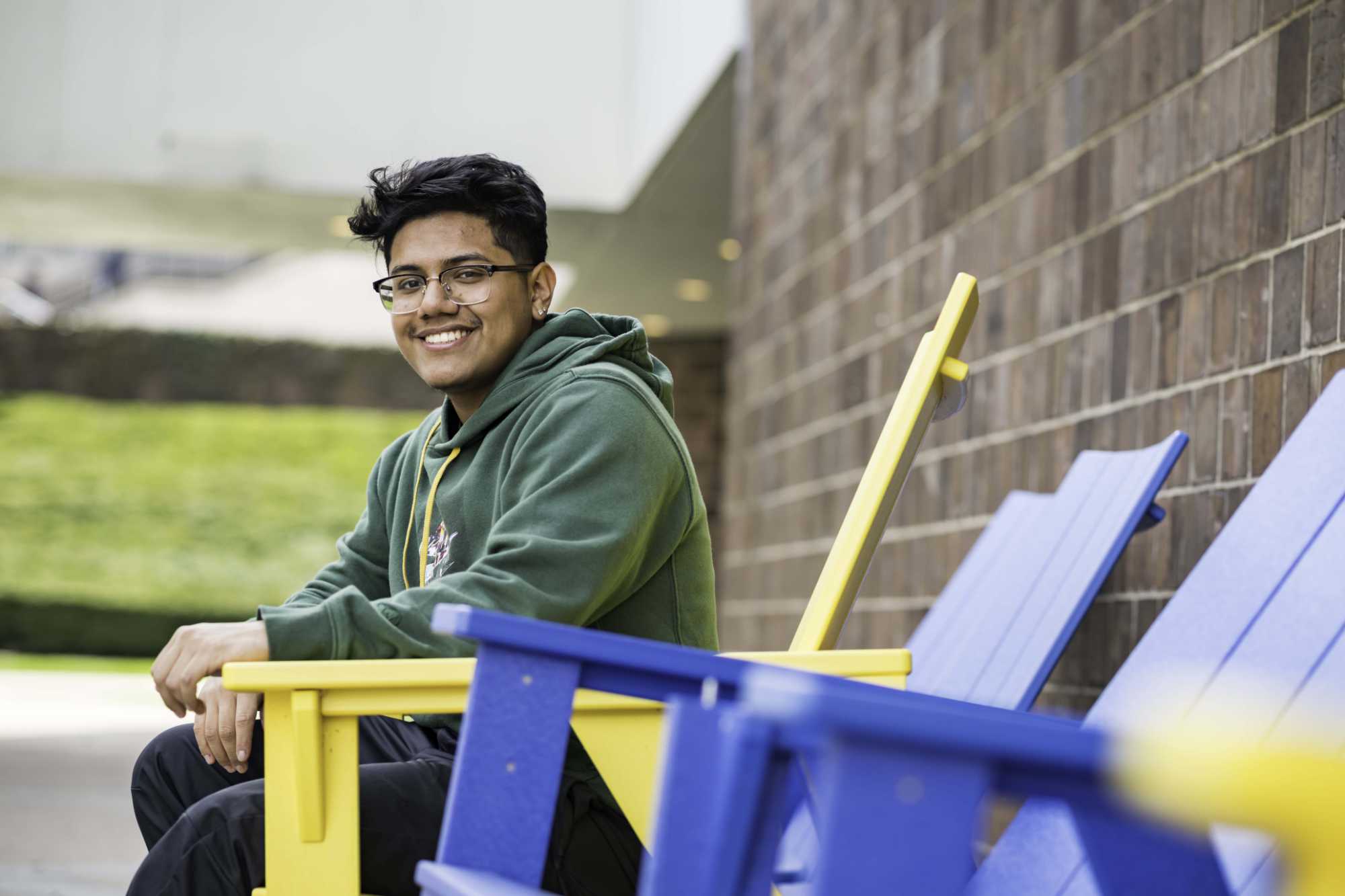
Who’s a first-generation student?
The definition of who is considered a first-generation student varies by institution. Some base it on whether a parent simply attended college—even if that parent didn’t graduate.
Many universities, including the University of Rochester, use the same definition as the Common App, the undergraduate college admission used by millions, and the 1998 Higher Education Act Amendments. “We consider a first-generation student to be one whose parents didn’t earn a bachelor’s degree from any college or university in the world,” says Robert Alexander, the vice provost and University dean of enrollment management—himself a first-generation college graduate.
First-generation student definition
At the University of Rochester, a first-generation student is defined as someone whose parents did not earn a bachelor’s degree from any college or university in the world.
By that definition, about 56 percent of undergraduates enrolled during the 2015–16 academic year reported being first-generation, according to the latest data from the National Association of Student Personnel Administrators (NASPA). Meanwhile, the data from the 2022–23 application season, as reported by the Common App (see Figure 2), places the number of first-generation applicants around 37 percent. While those percentages may seem high, they reflect the fact that many first-generation students enroll at community colleges.
The NASPA data also reveal other notable differences between first- and continuing-generation students. Only 36 percent of white students identified as first generation; meanwhile, most Hispanic or Latino students (60 percent), Black or African American students (59 percent), and American Indian, Alaska Native, Native Hawaiian, or Pacific Islander students (54 percent) were the first in their families to graduate from college. About 28 percent of first-generation students were 30 or older.
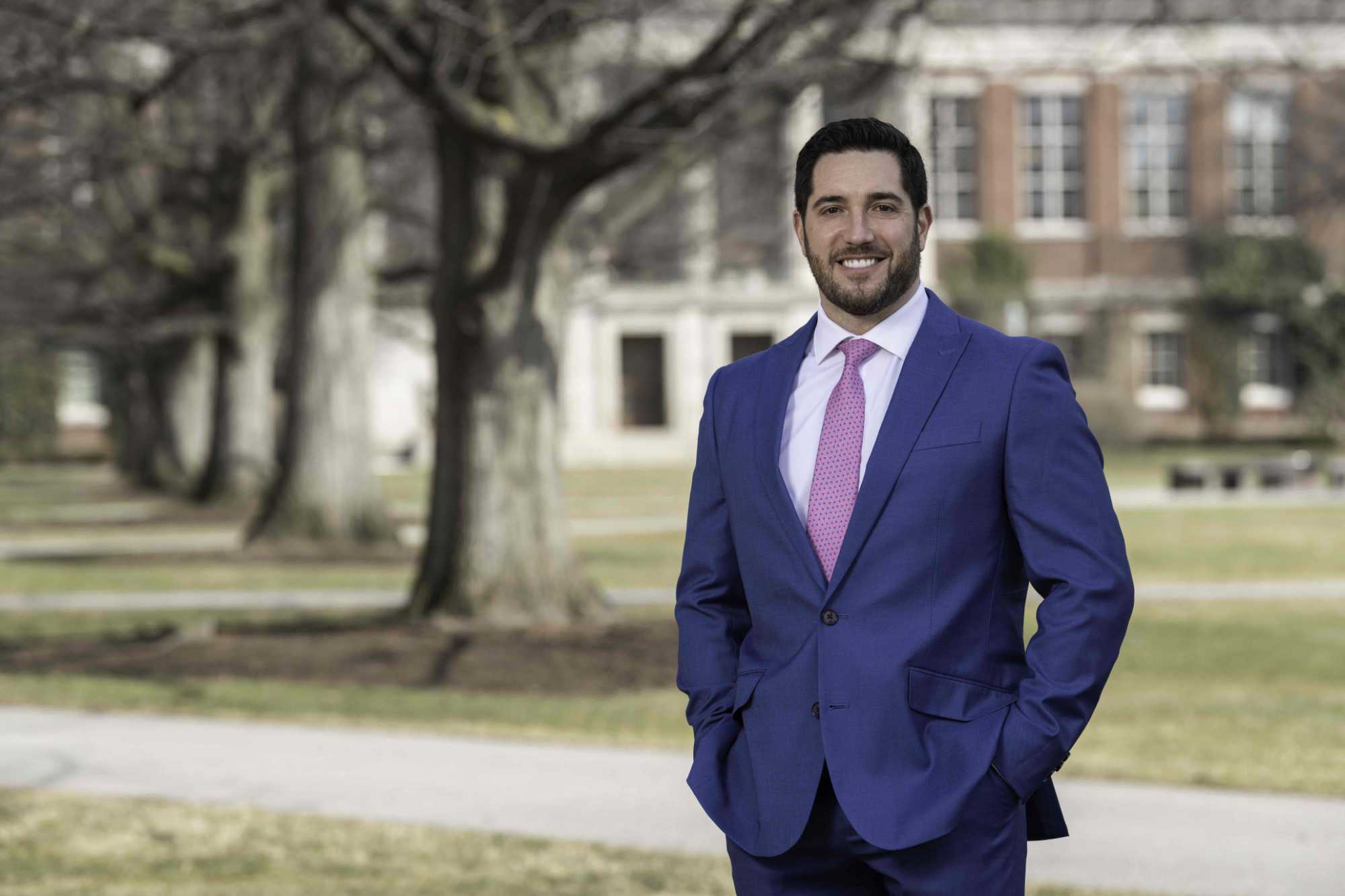
Alexander says his parents instilled in him early that education was the path to a better life. “My dad was a firefighter and had side jobs working for scrap metal companies,” Alexander says. “He’d say, ‘You see how dirty and greasy and tired I am? Do you want to work with your hands like this every day or go to a nice office and wear a tie?’ And it was a message I took to heart.”
Alexander says the University looks for students who are committed to making themselves, their communities, and the world a better place. “And that has little relation to whether their parents went to college or not,” he says.
Last June, the Supreme Court banned race-based affirmative action in college admissions. As a June 2023 USA Today article notes, colleges may come to rely more on indicators such as applicants’ first-generation status to diversify their student body following the Supreme Court’s ruling. The Common App even includes a box that students can check to self-report their first-generation status.
“We aren’t certain what to expect with the next incoming class,” Alexander says. “We’re going to work harder than ever to make sure that every qualified student sees Rochester as a great option.”
Navigating the college application process, often with no road map
Applying to college can be difficult—there are essays to write, financial aid forms to complete, and letters of recommendation to secure. It can be especially challenging for high school students whose families have limited or no familiarity with the process.
“It was stressful because I didn’t know what I was doing,” Pimentel says. “Fortunately, I received support through the entire college process from a program I was part of through my high school called Sponsors for Educational Opportunities. People there helped me with the Common App essay and supplemental questions and really everything in the process. With their support, I was able to make it to a great school.”
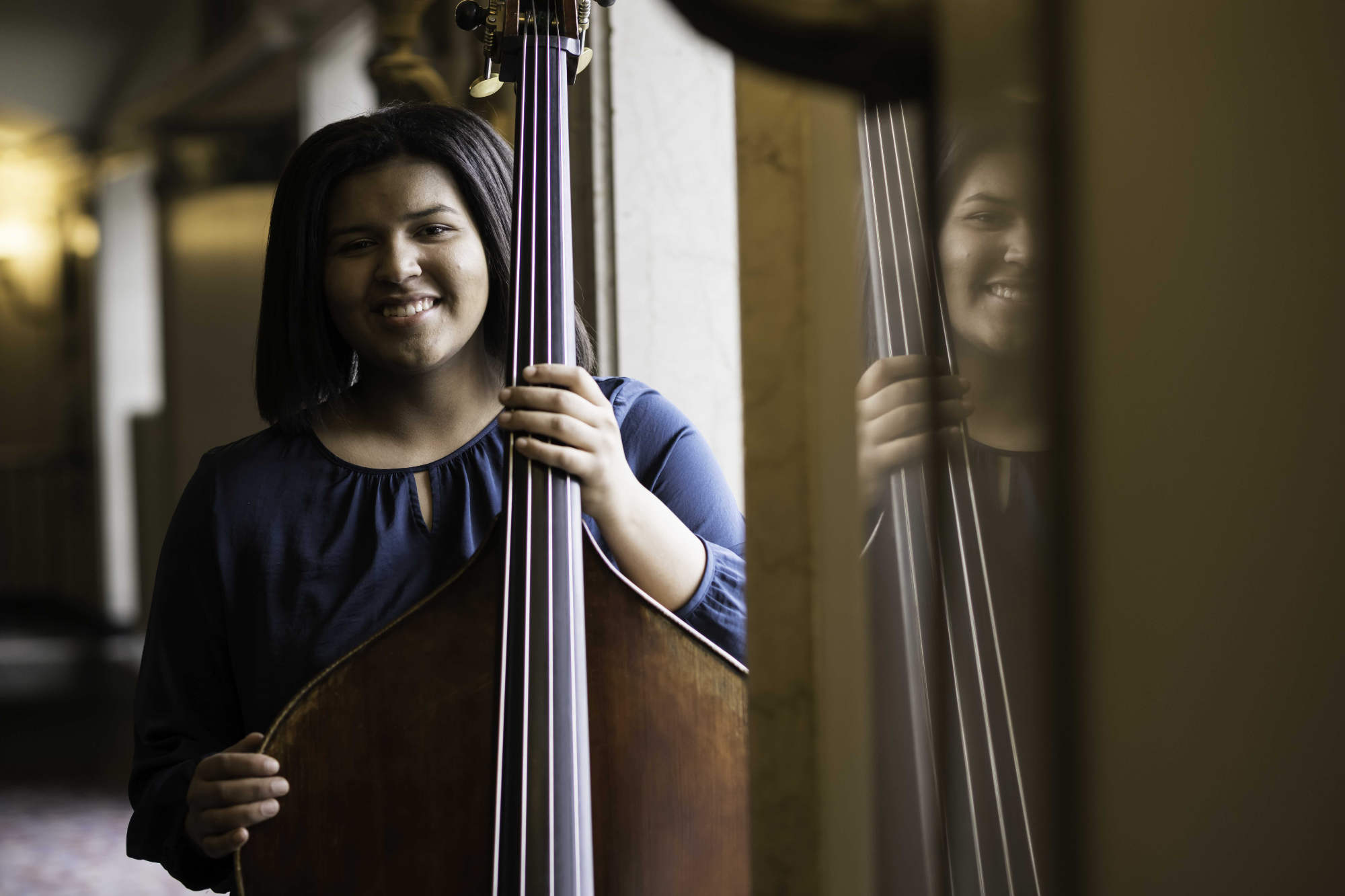
The anxiety was two-fold for Janae Gaddy ’24E, a double bass performance major at the Eastman School of Music.
“Figuring out which schools to apply to, learning how to develop supplemental materials, and organizing all of the deadlines is overwhelming,” she says. “But an extra layer exists for music schools, which often require initial prescreen videos as well as live auditions. Navigating all of this without family who had gone through the process was daunting and challenging. If not for music educators who sacrificed their time and resources to help me, I’m not sure I would have gotten through this process.”
Persistence pays off with a PhD at Rochester
According to the NASPA survey, a smaller proportion of first-generation graduates (4 percent) and those whose parents had some college experiences (5 percent) had enrolled in doctoral or professional programs than had their counterparts whose parents had earned a bachelor’s degree (10 percent).
Osborn aimed to buck the odds. She grew up in Kansas City, Missouri, the oldest of 10 siblings and half-siblings. She enrolled at the University of Missouri and had excellent grades her first semester. But she needed to pay for tuition and housing and began working three jobs—one as a research assistant at the college and the others at Applebee’s and Sam’s Club. It proved an impossible task. “I went two and a half years and failed pretty much every subject,” she says. “I finally was kicked out for poor grades.”
She moved out of state twice, feeling shame for disappointing her family, and worked several jobs over the next few years: car detailer, restaurant server, perfume boutique salesperson—even dabbling in day-trading on the stock market. She occasionally took courses at different community colleges. “I wasn’t happy,” she says. “I was working some days until 3 in the morning, and I had no life. I knew there had to be something better.”
Osborn contacted administrators at Missouri and asked to be reinstated. She was required to take some community college courses first but was readmitted. This time, she earned straight A’s, making the dean’s list every semester. “It was all about being focused,” she says. “I wasn’t ready for college the first time, and I wasn’t focused.”
In her final semester, she found a mentor in Missouri biology professor Rex Cocroft—“the first to really see my determination”—who guided her through the graduate school application process. She enrolled at Rochester in 2017, eventually earning a doctorate in translational biomedical services. While at Rochester, she cofounded and led the Alliance for Diversity in Science and Engineering, served as a student representative in the Translational Biomedical Sciences program, and cochaired the Rochester’s Young Science Club, designing and and implementing experiments for gifted and underserved area middle school students.
She is currently a postdoctoral fellow at the University’s Medical Center and recently accepted a job at Eli Lilly as a translational pathology bioinformatics advisor.
Ironically, speaking in front of thousands at the graduation ceremony was the first time Osborn didn’t feel imposter syndrome—the belief that she was out of place and undeserving of her accomplishments.
“I finally knew I belonged and knew the sacrifices I had made to get here,” she says. “It was an amazing feeling.”
The role of mentors, extracurriculars, and financial support
According to the NASPA survey, first-generation students nationwide are less likely than their continuing generation counterparts to participate in career fairs (24 versus 30 percent) or access career planning services (28 versus 34 percent). They’re also less likely to hold a formal leadership role or participate in a research project with a faculty member, land a paid internship, or study abroad.
Yet at Rochester, many first-generation students and alumni are taking charge of their education—and their future. In addition to making the most of the people, resources, and experiential learning opportunities available at the University, they are also advocating for themselves and their peers on campus and beyond.
Pimentel found a mentor in his undergraduate advisor, Molly Ball, a lecturer in the Department of History. “She was a resource beyond being a professor,” Pimentel says. “She would often send me ideas on how to blend the study of history and computer science with real-life situations. She helped me find the courage I needed to succeed on campus. She made sure I was in good hands for four years and working toward my goals. And she saw me graduate with a history degree.”
During his time at Rochester, Pimentel served as president of the Society of Hispanic Professional Engineers, where the Bronx native advocated for underrepresented engineers in STEM industries. He now works as a software engineer for an American multinational aerospace and defense technology company.
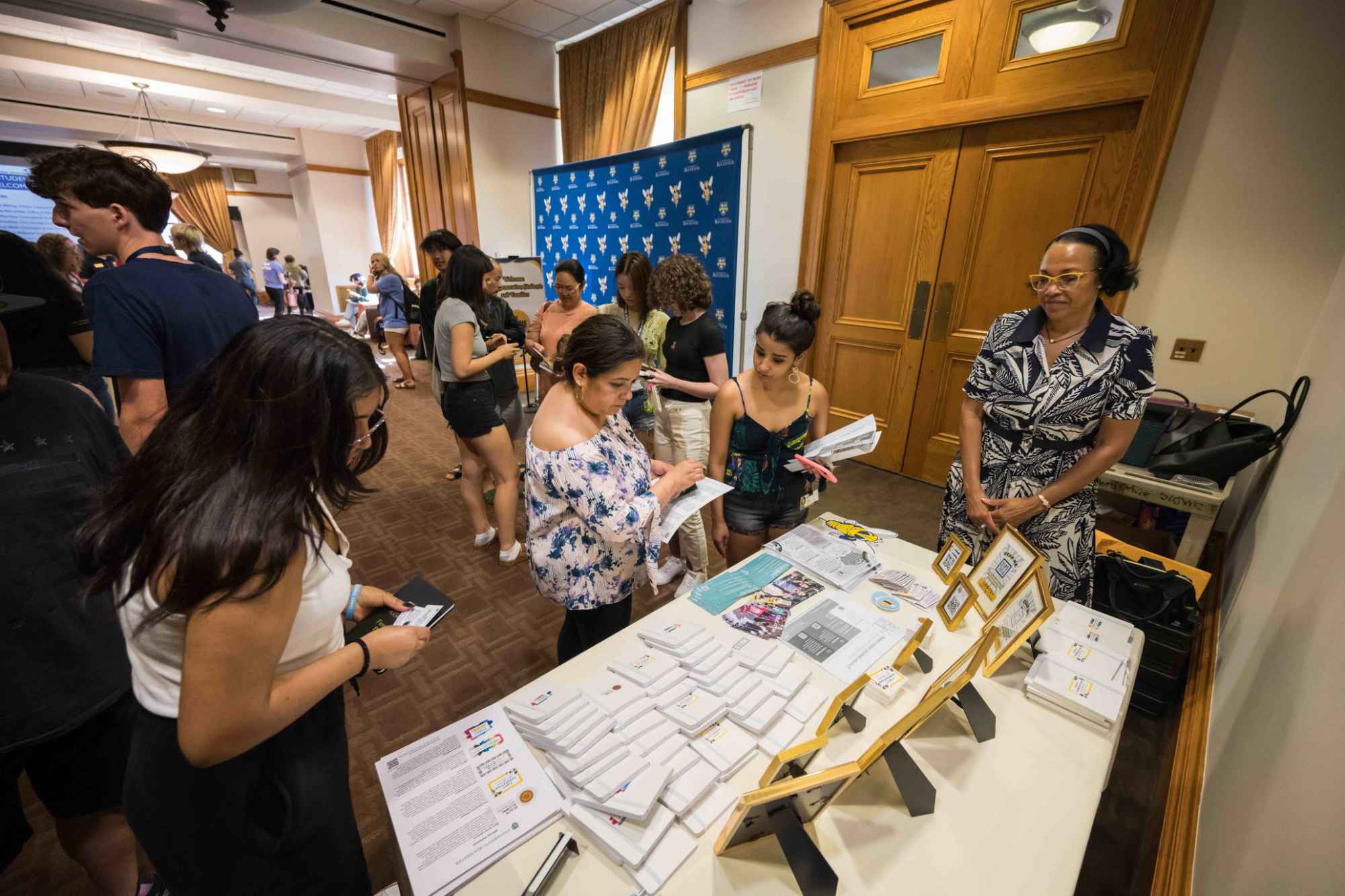
Gaddy’s mentor was Danielle Arnold, Eastman’s assistant director of admissions, where Gaddy works as an office assistant and tour guide. “Danielle has cultivated a work environment that is healthy, supportive, and challenging,” Gaddy says. “She has been a consistent source of encouragement, helping me overcome my fears and being a wonderful resource in the graduate school application process.”
Once the COVID-19 pandemic eased, Gaddy immersed herself in the Eastman and River Campus communities. She plays in the Eastman Philharmonia and other ensembles, has served as social media coordinator for InterVarsity Christian Fellowship, and is a member of Black Students Union at Eastman. She’s also a recipient of the Laura L. Fulton and Martin P. Zemel Eastman School of Music Endowed Scholarship, which provides financial assistance to talented students from diverse backgrounds.
Like 45 percent of first-generation college graduates nationwide, Gaddy expects to pursue a master’s degree—specifically, a master of music in double bass performance. She aspires to teach that instrument at a university, play in a chamber orchestra, and maintain a private teaching studio.
Kearns Center: Fostering a sense of belonging on campus
During his time as an undergraduate, Pimentel discovered the David T. Kearns Center, the academic home to all first-generation students on the River Campus. It offers many services to support students in their academic, personal, and professional goals, including advising and study groups, workshops on topics such as financial literary and building a professional brand, research opportunities, and assistance applying to summer research programs.
The Kearns Center also offers a one-credit, eight-week course titled Navigating the Academy, taught by Kearns staff and focusing on the transition to college life. While the course is geared toward first-generation students, any student who identifies as low-income or an underrepresented minority can take the class at any point in their academic career.
“The mission of the course is to provide space for students interested in connecting with our center to explore the shared individual and group narratives of students,” says Melissa Raucci, assistant director for college programs at the Kearns Center. “Through readings, activities, guest speakers, and group discussions, students increase their understanding of how to make the most of their college experience.”
Jazmin Dunham, a senior student support services advisor at the Kearns Center, is one of the course instructors. She says the class helps students realize they belong in the same classroom—and on the same campus—as peers from diverse backgrounds and economic statuses.
“By taking this course, students get a chance to build a sense of belonging and confidence in their academic abilities,” Dunham says. “It’s designed to address the unique challenges and experiences that first-gen students face—such as money, lack of family experience with higher education, and the pressure to succeed with limited role models—while promoting mutual understanding among students from different backgrounds.”
An extended network for first-generation students and alumni
The University’s First-Generation Network was launched in June 2021 and serves as an inclusive support platform for first-generation alumni, students, families, friends, and supporters. It offers mentorship, networking, and community-building opportunities.

“Countless first-generation alumni mentioned the need for a space and group to share their first-hand accounts of navigating their time at Rochester,” says Claudia De Leon, associate director of affinity networks and diversity, equity, and inclusion programs. “Although they came from diverse backgrounds, one thing held true: there were things they just didn’t know how to do, or who to go to, and they wished they had others they could count on for mentorship and guidance. Things like how to secure a research or internship opportunity, understanding FAFSA, along with the weight—conflicting feelings of guilt, pride, and a sense of responsibility—of being the first in their families to attend college.”
The network currently includes nearly 300 members and is cochaired by Doug Austin ’98, ’04S (MBA), Jessica Colorado ’12, ’20W (MS), and Celeste Glasgow Ribbins ’91.
“I went to an alumni event in New York City after just graduating and never felt like more of an outsider. I didn’t know anyone,” Colorado says. “But having an affinity network like First-Generation Network is identity-based. When we hold social events, students and alumni will know they are in a room with others who have similar experiences. It dismantles that barrier.”
Support services across campuses
In 2020, the University expanded support for low-income, first-generation students after receiving a five-year, $1.3 million grant from the US Department of Education to support additional academic advising services and other enrichment activities.
As part of its new strategic plan, Boundless Possibility, the University also recently created the new position of vice president for student life, reflecting a robust commitment to the student experience. John Blackshear began in the role on January 1, 2024.
In addition to the Kearns Center and the First-Generation Network, other resources are available to aid first-generation students on their academic journeys across Rochester’s campuses. These include:
- The Office of Minority Student Affairs (OMSA), the official academic home of all historically underrepresented minority undergraduates at the College, which includes many first-generation students. It uses advocacy, holistic advising, education, and collaboration with campus units to better the student experience.
- The Greene Center for Career Education and Connections website features a first-generation college students page that shares resources, events, blog posts, and campus support services. The center also collaborates with the Kearns Center and OMSA on its annual resume “drive-thru,” and with the Kearns Center for the annual Industry and Research Networking Night during First-Gen Celebration Week in November, where first-generation alumni network with current students. The Greene Center has a first-generation student engagement average of nearly 600 unique students over the past four years.
- Parent and Family Relations, which provides support and assists in orienting parents and families of undergraduate students on the River Campus to the college experience.
- The offices of Undergraduate Admissions and Financial Aid, which offer special workshops for first-generation prospective students, families, and advocates to help understand the college process. They also partner with hundreds of nonprofit community-based organizations across the nation and world whose mission is to increase college opportunities for first generation students. And through its Multicultural Visitation Program, the offices fund campus visits for high school seniors from diverse backgrounds who aren’t financially able to visit Rochester. In November 2023, 70 students received free travel to and from Rochester, took part in two days of specialized programming, and stayed overnight with a current Rochester student in a residence hall.
- The Eastman School of Music Admissions office, which offers individualized meetings with parents and families of all backgrounds as well as tours and online workshops to aid in the admissions process.
- The First-Generation Students and Families Committee, which celebrates, encourages, and promotes first-generation student success, and puts a spotlight on family. The committee has focused on building community and fostering a sense of belonging through programming and initiatives, including the First-Generation Students and Families Welcome for incoming first-year/transfer students and their families, a Commencement celebration, and the 1ST ONE campus campaign.
- The 1st Gen Society, a student organization created in 2018 by Pech Chhun ’19, who moved from Cambodia to Rochester at age eight. “My immigrant status made me particularly sensitive to the nuances of being different, and when I got to college, I was keenly aware of my distinctions as a first-generation student,” Chhun says. “The 1st Gen Society emerged from the universal condition of wanting to be accepted and belong.” Hanan Allen, assistant director of Wilson Commons Student Activities, serves as advisor and Winifred Dorlean ’24 is president.
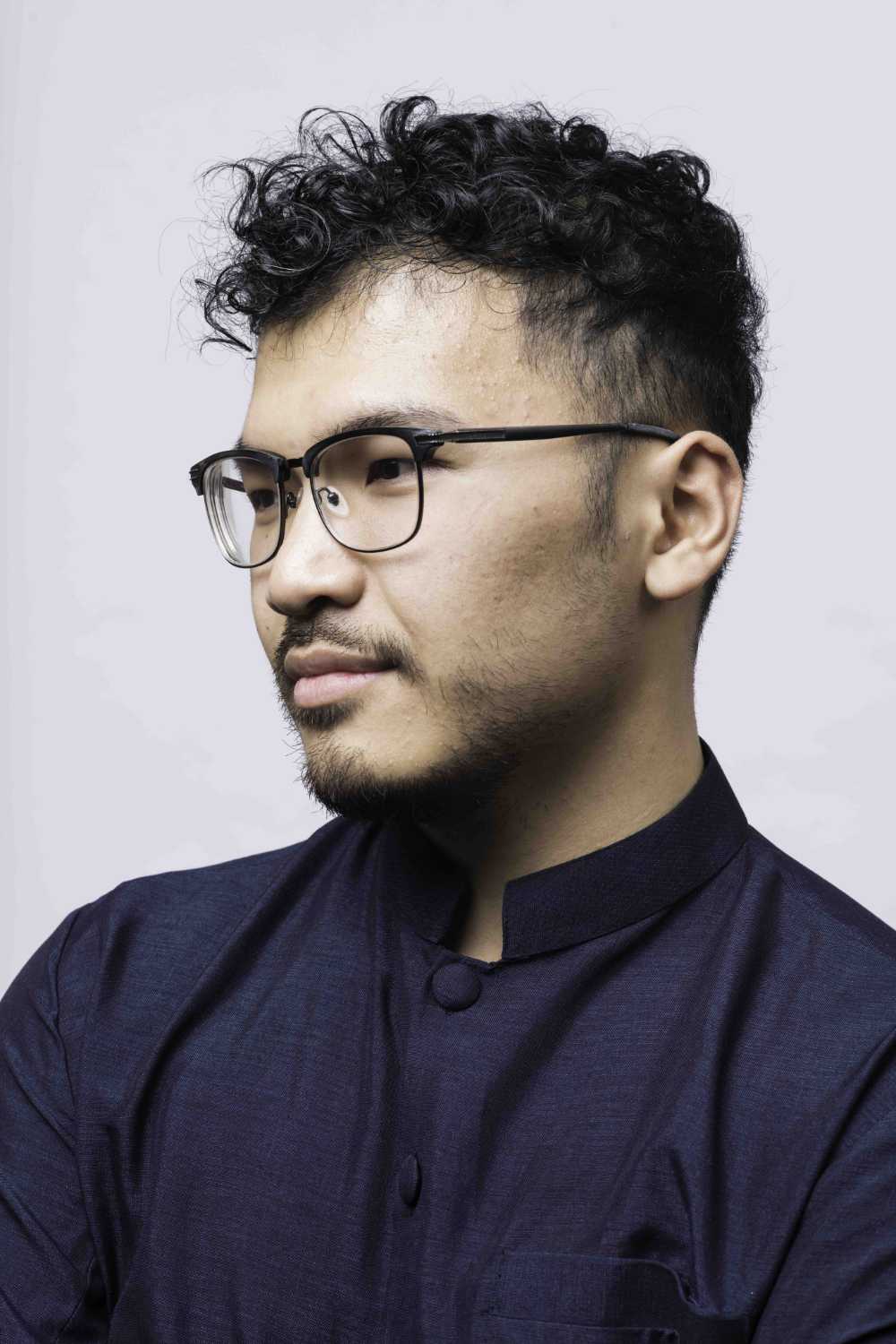
A clinical psychology and biology double major at Rochester, Chhun earned a master’s degree in education studies and leadership in technology integration at Johns Hopkins University in 2022. He now works as a training and development specialist at San Diego Youth Services, a nonprofit organization that supports homeless youth. The 1st Gen Society remains vibrant five years later, with about 340 University undergraduates registered members. Chhun remains involved with his alma mater as a member of the First Generation Network committee.
An investment in the future
Alexander says many first-generation students shun college for two main reasons: imposter syndrome and financial worries.
“A lot of them wonder, ‘Am I really qualified to do this? Do I belong on a campus with all these other students who know how to navigate college?’ And the answer is ‘yes.’ They’re totally deserving to be here. And everybody faces some sort of doubt and struggle.”
Fear of debt is another factor. A study from the Pew Research Center showed that first-generation students have lower incomes and less wealth, on average, after graduation than peers who have at least one parent with a college degree. Nonetheless, Alexander maintains that education is the key that unlocks the door to socioeconomic mobility.
“You hear people say, ‘College isn’t worth it, or ‘the return on investment isn’t what it used to be,’” Alexander says. “Yes, you can work in an Amazon warehouse straight out of high school and make $30,000 or $40,000 a year. But your salary trajectory over time is going to stay relatively flat. For a college graduate, especially from a selective school like Rochester, they might be taking on debt (through student loans) and delaying the start of work. But by the time they’re 40 or 50, there’s an extraordinary compounding differential in terms of income. I wouldn’t have been able to get my bachelor’s, master’s, or doctorate without the federal loan programs.”
Alexander notes that most people think nothing of taking on a large loan to finance a new car. “Yet as soon as you drive it off the lot, it’s worth much less than it was a few seconds ago,” he says. “And it continues to depreciate over time.”
By contrast, he says, a college degree generally only increases in value over time. “In that sense, it’s an incredible return on investment, helping college graduates build successful careers and lead fulfilling lives.”
Advice from first-generation students
With more than 300 active members, the 1st Gen Society is an undergraduate student organization created in 2018 by Pech Chhun ’19. Read tips and takeaways from some current members, with their areas of study in parentheses.
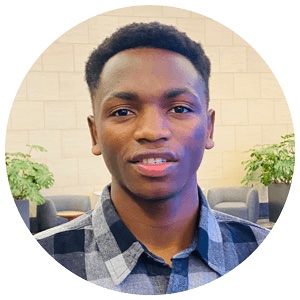 Emmanuel Ahishakiye ’27 (computer science, business)
Emmanuel Ahishakiye ’27 (computer science, business)
Kigali, Rwanda
“Navigating imposter syndrome was a formidable challenge, but engaging in insightful dialogues with faculty and peers revealed more opportunities and a robust support network—a strong family that transformed my journey. As a first-gen student, I bear the substantial responsibility of being a valuable resource for both my family and the community, making a meaningful impact. Indeed, the sky is the limit!”
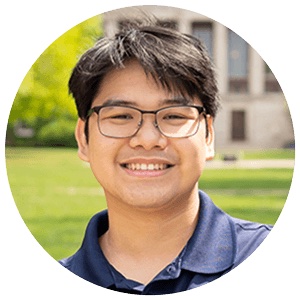 Earl Bumagat ’26 (digital media studies)
Earl Bumagat ’26 (digital media studies)
Los Angeles, California
“Though there are some bumps in the road, it’s important to keep a persevering, curious, and open-minded mindset to get through those obstacles, realizing that failure is okay and is actually beneficial toward a better road ahead.”
 Jacky Chen ’26 (biochemistry)
Jacky Chen ’26 (biochemistry)
New York City, New York
“I strongly believe that every student is capable of thriving when they’re connected with the right resources and people. Put yourself out there. Connecting with like-minded peers and finding an upper-year mentor would help tremendously, especially the first few months of college. Hearing and reflecting on other people’s perspectives and experiences can really inform you about how you might want to approach your own college experience and beyond!”
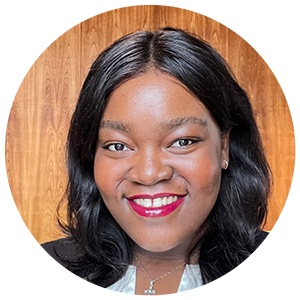 Winifred Dorlean ’24 (chemistry)
Winifred Dorlean ’24 (chemistry)
Austin, Texas
“In recognizing my potential, student clubs like the 1st Gen Society, MAPS, and SOCA exposed me to other first-gen students who came from similar backgrounds or had similar career interests as I did. The first-generation community at Rochester is incredibly ambitious, motivated, and dedicated to changing their narrative, while also creating a table for themselves to feast at.”
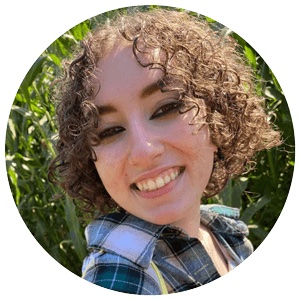 Alicia Markovich ’27 (linguistics)
Alicia Markovich ’27 (linguistics)
Fairmont City, Illinois
“As a first-gen student here on campus, it’s been a bit of a struggle adjusting to being on my own, having to manage my courses, and it was difficult finding people who have similar experiences as me or someone to help answer my questions regarding the entire college process. I was just looking in the [wrong?] places, though! My advisor, my UHS mentor, and even just the emails from the 1st Gen Society have given me so many resources to plan my years, choose a career I love, and manage my time here! The events they hold are also super fun and helped me find students to connect with that are also first-gen! I really appreciate everyone on campus who makes resources readily available to students like me.”
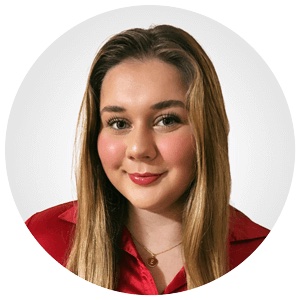 Jordan Martin ’25 (statistics, financial economics)
Jordan Martin ’25 (statistics, financial economics)
Syracuse, New York
“Rochester very quickly became one of my top schools during my college search in high school because on top of the great academics and opportunities offered, they really emphasized their care for first-generation students. I learned about the Kearns Scholars program as soon as I arrived. I am fortunate to have a Kearns advisor (Jazmin Dunham) who helped me out tremendously when it came to navigating my classes, changing my major, and reassuring me that I am right where I need to be. Rochester has helped me become proud to be a first-generation student even with the hardships I have faced and continue to celebrate our achievements as being the first in our families to go to college.”
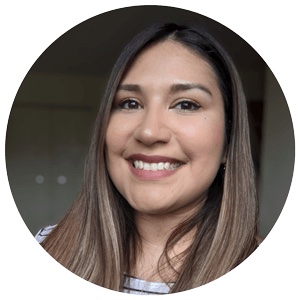 Yessica Yireh Arvizu Martinez ’24 (psychology)
Yessica Yireh Arvizu Martinez ’24 (psychology)
Mexicali, Mexico
“Being an adult student during my undergraduate education has not been easy. Many times, I have felt out of place and doubted my abilities, either because I am a first-gen and had little guidance, or because I am also a transfer student. It has not been easy to be far from home and my family during my transition into adulthood, struggling with mental health and financial difficulties. However, in Rochester I have found many kind people, beginning from the TransferStudent Organization that introduced me to my first friends. Having cultural diversity at school has helped me feel welcome and included.”
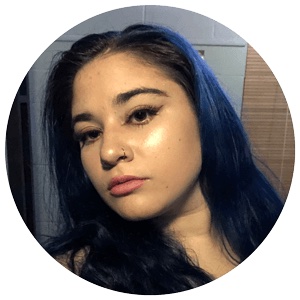 Lexxi Reiter ’25 (molecular genetics)
Lexxi Reiter ’25 (molecular genetics)
Milwaukee, Wisconsin
“New students should actively seek out and build a relationship with all their advisors as soon as possible. You will talk to these people the most and build a strong bond with them throughout your college career. Secondly, learn to balance fun, school, and work. Your academics should always be your priority over work or fun, no matter what anyone else may tell you. Enjoy your years at school and work hard!”


